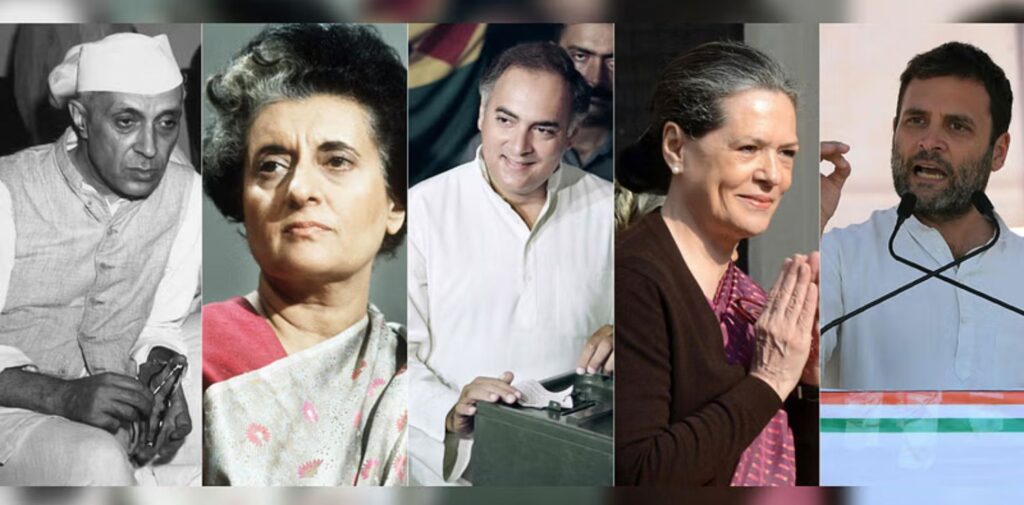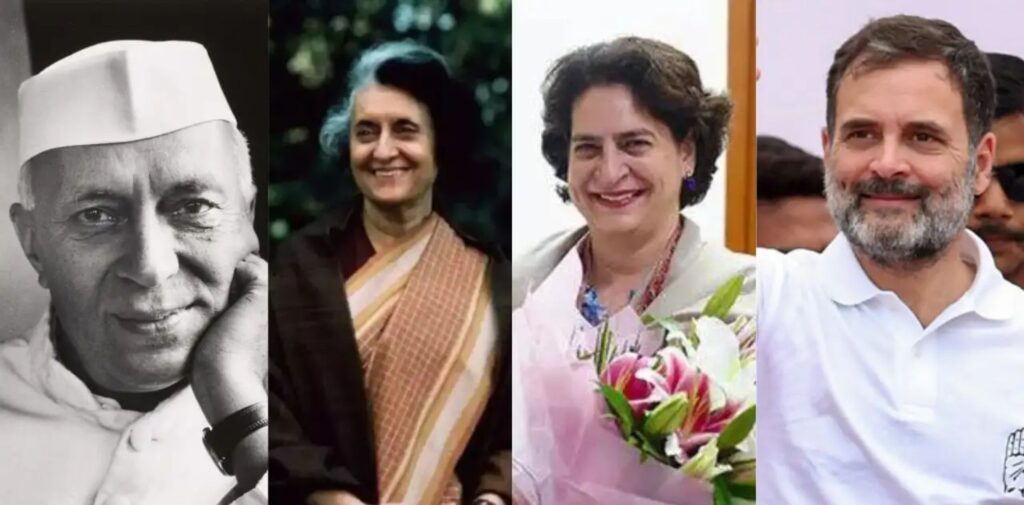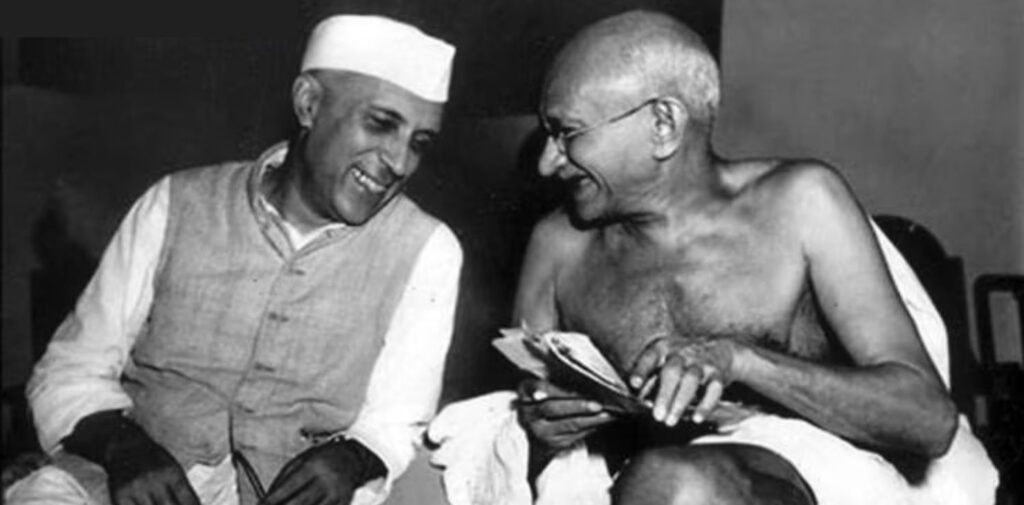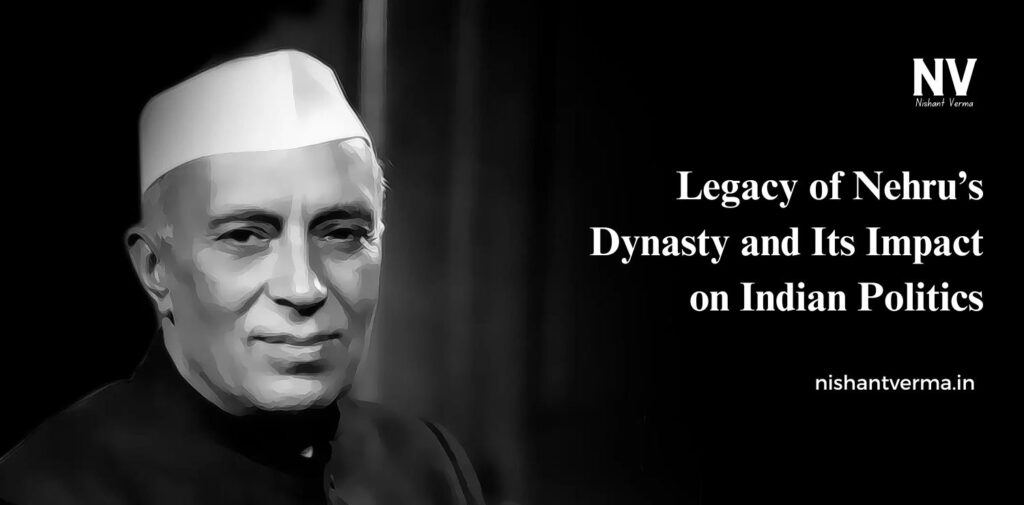India, the world’s largest democracy, has witnessed the influence of several political families that have shaped the nation’s destiny. Among these, the Nehru-Gandhi family, often referred to as the “Legacy of Nehru Dynasty” stands out as the most prominent and controversial. This family has been at the heart of Indian politics since the country’s independence in 1947, and its legacy continues to influence political decisions, elections, and public life today.
The legacy of the Nehru family, particularly the impact of Jawaharlal Nehru, the first Prime Minister of India, has been a subject of intense debate. While Nehru played a key role in India’s freedom struggle and its early years of independence, the political influence of his family has continued to dominate Indian politics for over seven decades. But how has this influence shaped the nation’s political landscape, and what effect has it had on the country’s democratic institutions?
The Nehru-Gandhi Family: A Brief Overview
The Nehru-Gandhi family’s involvement in politics began with Jawaharlal Nehru, who was a central figure in the Indian independence movement. Nehru became the first Prime Minister of India in 1947, after the country gained independence from British colonial rule. He led the country for 17 years, until his death in 1964, shaping much of its early foreign and domestic policies.
After Nehru’s passing, his daughter Indira Gandhi took over the leadership of the Congress Party and the country. Indira became India’s first female Prime Minister and served for a total of 15 years, with a brief interruption in between. Her son, Rajiv Gandhi, followed in her footsteps and became the Prime Minister in 1984, continuing the family’s hold on power.
Since then, the legacy has been carried forward by the next generation, particularly Sonia Gandhi, the Italian-born wife of Rajiv Gandhi, and her children, Rahul Gandhi and Priyanka Gandhi. Despite several challenges and changes in India’s political landscape, the family has maintained its dominance in the Indian National Congress (INC), which remains one of the largest political parties in the country.

The Long Shadow of the Nehru Dynasty
One of the most striking aspects of the Nehru-Gandhi family’s influence is the sheer duration of their dominance. For over 50 years, members of this family have held the highest office in the country or have been at the helm of the Congress Party. This long-running control has led to a situation where the family’s legacy is seen as inseparable from the history of independent India.
While Nehru’s contributions to the country were significant, particularly in shaping its democratic institutions and foreign policy, his descendants have often been criticized for relying on their family name to secure power, rather than their individual abilities or merit. The dynastic nature of Indian politics has, over time, raised questions about the country’s democratic health, with many arguing that the excessive influence of a single family undermines the democratic ideals of equality and meritocracy.
The Political Dominance of the Family
Nehru’s political influence, and that of his family, has not just been limited to the years in which they held office. Their dominance is reflected in the continued importance of the Congress Party in Indian politics. Even today, the Congress Party remains the largest opposition party in India, despite the rise of other regional and national political forces.
This dynasty’s grip on political power has created a situation where key political decisions are often made with an eye on the family’s interests rather than the country’s needs. For example, during Indira Gandhi’s tenure as Prime Minister, the country experienced significant political turmoil, including the Emergency period (1975-1977), where civil liberties were suspended, and political opponents were jailed. Indira’s authoritarian style of governance was justified by her loyalists as necessary to safeguard the country from chaos, but it also led to widespread criticism for stifling democratic institutions.
Similarly, Rajiv Gandhi’s tenure was marked by ambitious economic reforms, but his leadership was also marred by allegations of corruption, particularly in the Bofors scandal. Despite such controversies, the Gandhi family continued to wield influence within the Congress Party and Indian politics at large.

The Influence on Democracy and Governance
The continued dominance of the Nehru-Gandhi family has had both positive and negative impacts on India’s democracy and governance.
On the positive side, Nehru’s vision for India as a secular, socialist, and democratic republic laid the foundation for a stable and inclusive political system. His commitment to public welfare, education, and infrastructure helped shape India’s early years. Under his leadership, India adopted a democratic constitution and built strong institutions like the Indian Parliament and the judiciary, which continue to play a crucial role in the country’s governance.
However, the long-lasting influence of the Nehru-Gandhi family has also been criticized for creating a culture of dynastic politics. In a democracy, the idea that a single family can dominate politics for generations contradicts the principles of equal opportunity and political competition. Critics argue that this has led to a concentration of power within one family and has stifled the growth of other political leaders and voices. In many instances, political appointments and party positions have been made based on family ties rather than merit, which has hindered the development of a more diverse and capable political leadership.
The Rise of Alternative Political Forces
In recent years, the dominance of the Nehru-Gandhi family has been challenged by the rise of alternative political forces. The Bharatiya Janata Party (BJP), under the leadership of Narendra Modi, has emerged as a major competitor to the Congress Party. Modi, who rose from humble beginnings, has presented himself as an outsider to the dynastic politics of the Congress and has emphasized the importance of leadership based on merit, not family connections.
The rise of regional parties and leaders has also weakened the stranglehold of the Nehru-Gandhi family on Indian politics. Leaders like Mamata Banerjee in West Bengal, Arvind Kejriwal in Delhi, and Yogi Adityanath in Uttar Pradesh have shown that strong regional leadership can challenge the national dominance of the Congress Party. These leaders often appeal to the electorate by promising more localized and inclusive governance, contrasting with the perceived elitism and dynastic control associated with the Congress Party.

The Future of the Nehru-Gandhi Legacy
As India moves forward, the question remains whether the Nehru-Gandhi family will continue to have the same level of influence in the country’s politics. While they still command a large support base, particularly among older generations and certain communities, the younger electorate has increasingly turned to new leaders who promise change and progress beyond the shadow of dynastic politics.
The Congress Party’s future will likely depend on how effectively it can distance itself from the legacy of its dominant family and embrace fresh leadership and ideas. For the party to regain relevance, it must adapt to the changing political landscape, address the concerns of the youth, and move beyond the reliance on the family name.
Conclusion: Legacy of Nehru Dynasty
The Nehru-Gandhi family has undeniably played a major role in shaping India’s political and democratic evolution. From Jawaharlal Nehru’s leadership during the early years of independence to the current influence of Sonia Gandhi and her children, the family’s impact on Indian politics cannot be understated. However, their prolonged dominance has raised important questions about the future of Indian democracy, with many calling for a move towards more inclusive, merit-based politics.
As India’s political landscape continues to evolve, it remains to be seen whether the Nehru-Gandhi family will continue to play a central role or whether new political forces will emerge to reshape the country’s future. Ultimately, the legacy of the Nehru-Gandhi dynasty serves as both a testament to India’s democratic journey and a reminder of the challenges that dynastic politics can pose to a truly inclusive and competitive political system.




